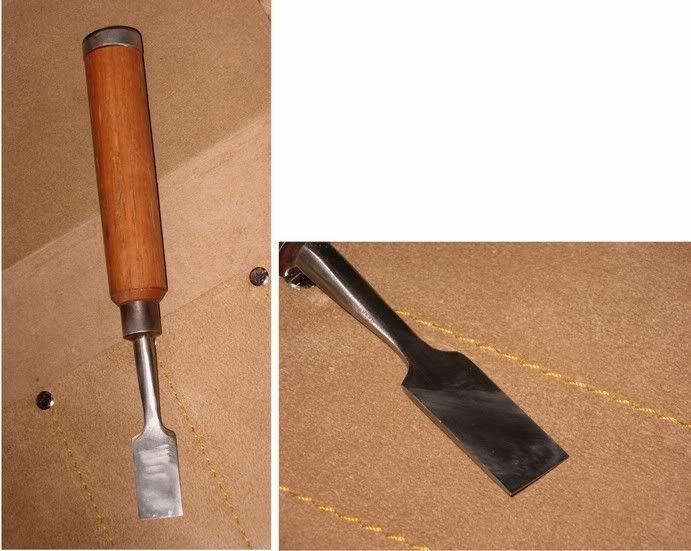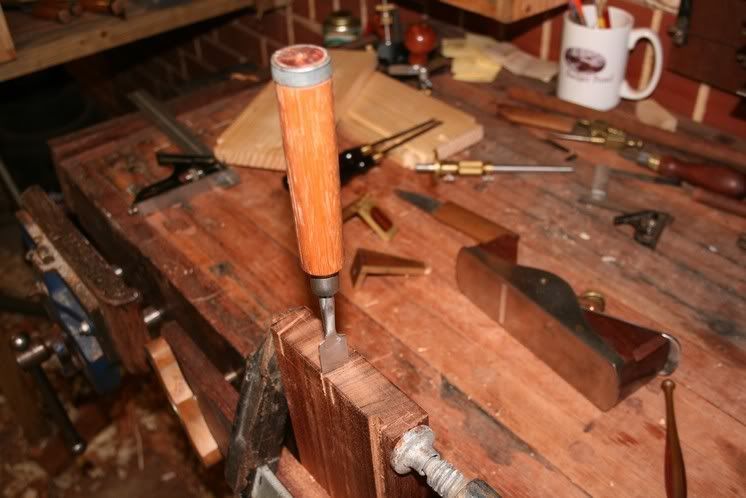Doug B":1y8noyvx said:
Going back to the original question,
Having seen a couple of lads from Rycotewood cutting dovetails yesterday, they were making a very good job with a couple of old Marples chisels, an ordinary looking dovetail saw & an old looking coping saw.
I think the most important thing is sharp tools & then practice.
Doug, you got it in one. These dovetailing threads are always fascinating to watch. Dovetails aren't the easiest joints to get right first time, but they're also not an especially difficult joint to execute well. The most important characteristics are an ability to mark accurately followed sawing and chiselling accurately to those marks using sharp tools. The techniques involved require practice, quite a bit of it really, because there are several tasks, each of which have to be well executed, before a worker can achieve consistent accuracy and speed.
The ability to mark accurately is important, and so is the ability to sharpen a variety of tools from planes to chisels to saws. Add to that the need to be able to use the tools accurately and it soon becomes obvious why some people struggle.
I don't use particularly fancy tools to do the job; the fanciest is probably my Independence brand dovetail saw with a rip tooth pattern, but I can use just about any saw with a back on it within reason, even a dull and poorly looked after thing with cross cut pattern teeth; it has to be admitted that a skanky saw does make life frustrating and harder, but not impossible.
The rest of the kit I use is very ordinary including standard try squares and adjustable square ro mark mitres if required; cutting gauges, marking gauges, rules, (a bevel gauge or dovetail gauge too if I'm going to mark a specified rake) a bird's beak knife and a 0.5 mechanical pencil. Other bits of kit include Stanley brand chisels and a no-name coping saw along with a bench stone which happens to be a ceramic stone, saw files and a saw set.
That's about it, unless I've forgotten something. Simple kit, and those bits of kit that need to be sharp are sharp. The rest of the job is down to accuracy of execution and that requires practice, lots of it until it all becomes second nature and you can almost do it your sleep. Slainte.



































